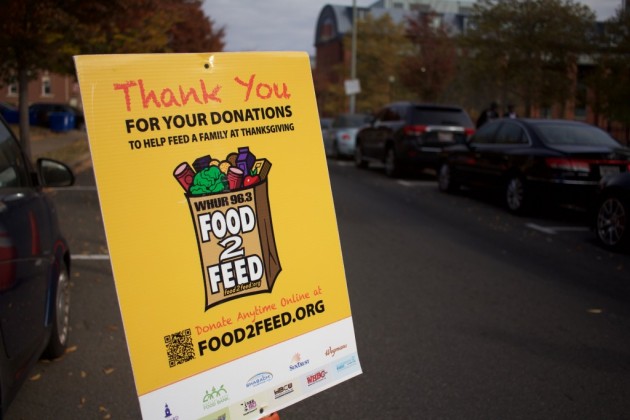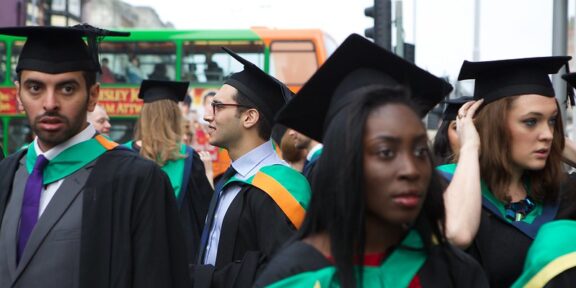With tears poised at the brim of her wrinkled, worn eyelids, a lady who called herself S. Williams answered defiantly, cautiously, and with a subtle attitude, “Yes, I’m married, but who wants to know?”
The Maryland native squirmed and fidgeted in the train seat hoping to buy
the time that would bring her stop closer, faster. Her discomfort with
the subject matter was palpable.
An agonizing pause preceded the answer to the follow-up question…”Are you happily married?” Once again, the tears threatened to tumble as her eyes revealed the angst of a love deferred. She managed to dam the impending emotional meltdown–– a coping mechanism she probably learned from suppressing years of disdain at a failed marriage or worse- an unfulfilled one.
She eventually revealed that her marriage of 35 years began as a high school fling. Her husband was from “around the way.”
She rattled off the usual nuances of a “successful” Black marriage: commitment, friendship, communication. She stumbled over honesty and fidelity, continuing to guard the minor detail that had previously moistened her eyes. She cautioned against marrying young, arguing over finances and losing respect for your spouse.
When the train came to her stop, she hastily departed.
When couples exchange wedding vows, they sincerely expect to love and cherish their mates until death do them part. But things fall apart.
For many Black Americans, the concept of a prevailing Black love isfar removed, let alone Marriage.
Statistics reveal that the Black marriage rate is now the lowest among all racial groups in the United States. Only 28 percent of all Black women over 15 are married, a rate that is half that of White women. Seven out of ten White adult men are married as opposed to 1 out of 10 Black men; †And Black marriages end in divorce and separation at three
times the rate of Caucasians and twice that of Latinos. Consequently, Blacks are among the most unpartnered and estranged individuals in the world.
And as S.Williams showed: You don’t have to be single to be estranged.
The statistics paint a formidable picture that make long-lasting, and fulfilling Black marriages a rarely publicized exception-save for Black celebrity couples.
But when Will and Jada publicly endorse “open relationships”; when Halle and Eric’s marriage suffered from “sexual addiction”; when “Magic” Johnson announces he is HIV positive; when Kobe bumbles about “being human”; and when Brian McKnight loses all authority to croon your love tune, the love landscape seems more dismal.
Furthermore, there obviously is a problem when the government gets involved. In his first term, the Bush Administration announced an African American Healthy Families Initiative that purported to stabilize Black marriages and families. The program would earmark $300 million for programs in marital education and premarital counseling.
The results are yet to be seen.
Unbeknownst to many however, is a burgeoning breeding ground for Black Love. On college campuses, there is a growing number of black college-age scholars who are preparing themselves financially, emotionally and spiritually for prevailing Black marriages, despite the stigma surrounding it.
The scholars know good marriages don’t just happen, they have to be worked on. That’s why marriages that endure years of triumph as well as tragedy stand out among the crowd.
They know for those couples fortunate enough to be in longtime unions, the keys to longevity lie in commitment, trust, friendship and love.
They know that the bleak statistics and tales of Hollywood amour areto be taken with a grain of salt.
In fact, one college student warned, “Don’t believe the hype, the statistics and media make the state of Black marriages seem worse than it is.”
Adam Wynn, a communications student at Howard University continued: “Black love and marriage is a beautiful thing––anything Black is beautiful.”
“Love is unconditional,” he added. “No matter what is done, you always have that deep heartfelt feeling for your companion and your love will grow because of it.”
Experts concur. “Marriage is an ongoing process, a growth process,” says Dr. Dana K. Dennard, a clinical psychologist who is assistant professor of psychology at Florida A & M University in Tallahassee. He adds that as years go by, relationships change. “Day five will not look like day one. You must embrace change rather than resist it.”
Adam’s love does come with conditions, however. His lifelong companion must be able to carry a conversation, cook and clean. Until then- Adam remains a certified bachelor. “I’m sure I’ll get married one day because I have a positive view on marriage. But as for now, I just have ‘friends,'” said Adam with a mischevious laugh.
Adam also mentioned the commonalities such as religious foundation and family values that are important in forging solid relationships and eventually long-lasting marriages. Philosophy major Patrick Johnson told how he and a girlfriend didn’t make it because of different”religious philosophies.”
Tamara Crawford, a sophomore from New York, told how a former boyfriend’s family problem handicapped their relationship.
Kimberley Graham, a senior from Richmond. California, shared advice from her mother: “If he doesn’t respect his mother, he’s not going to respect you.”
All of which, are in keeping with the doctor’s orders.
“Harmonious couples must maintain shared values and compatibleinteractive styles, Dr. Dennard emphasizes. “Definitely key to a marriage lasting is being very clear about value systems, It is important that they agree on issues such as work, education, spirituality, how they relate to each other and how they raise children. The more they have that they agree on that is important in life, the tighter the bond between them.”
College mates Jeffrey Henry and Jennifer Law agree on one thing–they’re in love.
“We are always spending time with each other,” said Jennifer, junior psychology major at Howard University. “Right now, I wouldn’t have it any other way.”
Neither would Jeffrey. But between juggling an internship, a tutoring gig and, of course, school work, he admits, “something’s gotta give.”
“You could look at it in a negative way or in a positive way,” said the senior finance major. “The way I see it, people should be glad that me and Jennifer actually want to spend time together with all the negative stereotypes about black relationships and all.”
But the two have plenty of obstacles ahead. Following his graduation in May, Jeffrey will head to bustling New York City as a financial analyst for Merrill Lynch. Jennifer still has one more year to go at Howard.
“It’s going to be hard, not being able to have that day-to-day interaction,” predicts Jennifer. “I’ve never been in a long distant relationship where I actually cared if the relationship survived. Now, I care so much, I hope things work out.”
And it only gets harder as veteran husband and wife Eric and Patricia Allen can attest to.
For the Atlanta couple, open and honest communication is the glue that has held their marriage together for nearly, seventeen years. The Allens, who will celebrate their seventeenth anniversary in July; say they talk about everything that comes up in their relationship, no matter how big or small.
“We handle conflicts by communicating as immediately and as openly as we can after a dispute,” said Eric, a 42-year-old master chef. “Even when we disagree, we try to respond kindly to one another.”
“We don’t always agree on everything,” explains Patricia, a 40-year-old real estate agent, “so we agree to disagree.”
“Love should just click,” she continued. “If it’s not there, it’s not going to be there.”
In addition to keeping the lines of communication open, the Allens have learned to respect each other’s individuality. Eric is very active in sports and community service organizations, activities he thought he would have to give up after taking his wedding vows.
“When I first got married,” Eric recalls, “I gave up time with friends and I lost a lot of me by concentrating on being the perfect husband. When there is a balance between individual and family interests, it strengthens the marriage.”
The Allen’s solid marriage began as a college sweetheart fling—a testament to the potential permanence of the bonds formed while attending college.
Perhaps it should be said that if a love can withstand the ubiquitous drama, stress and coming-of-age pressure of the college setting, then that same love can withstand discouraging statistics, high profile breakups and the test of time.





